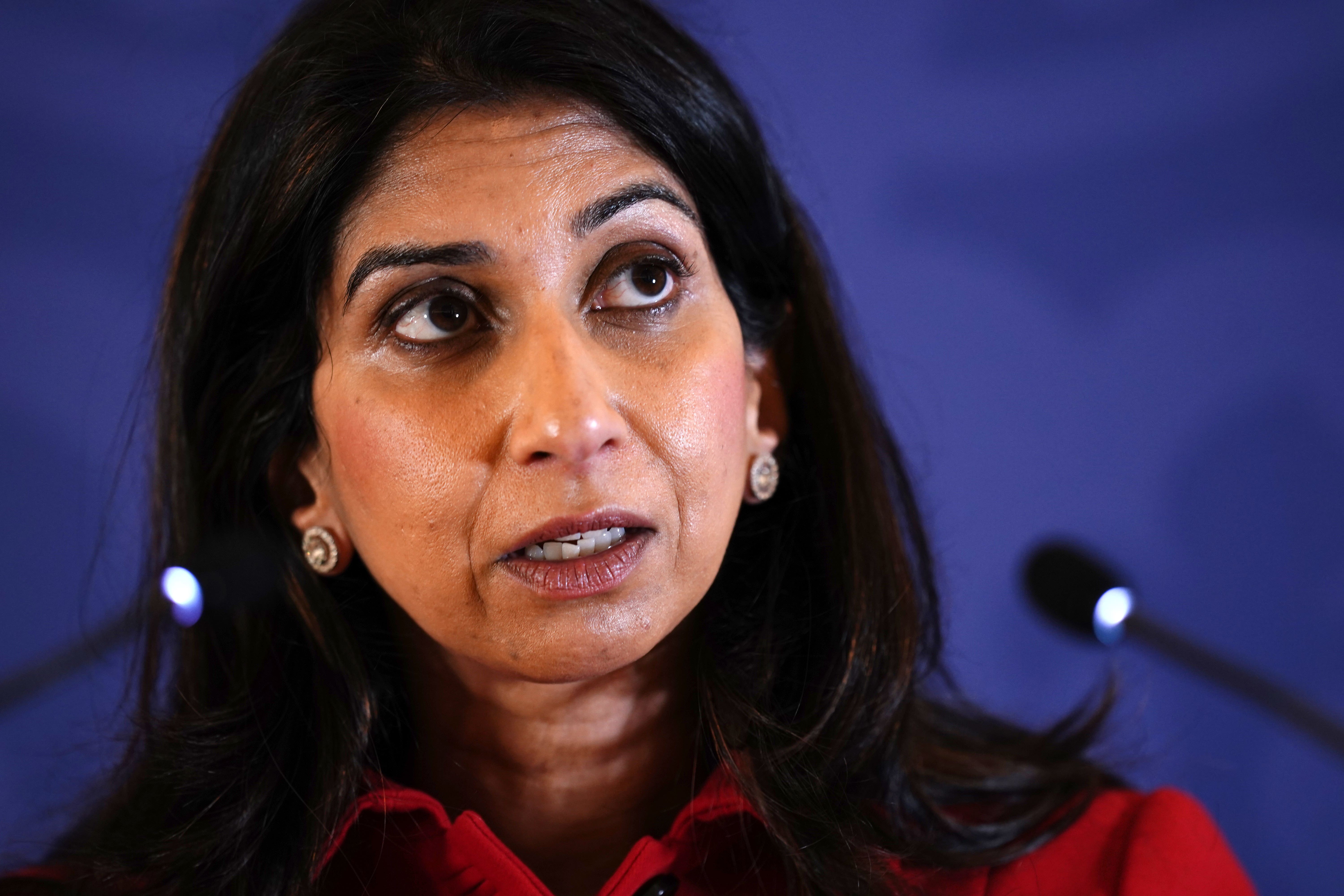Is Suella Braverman right to say multiculturalism has failed?
Aftershocks continue to be felt from Suella Braverman’s incendiary speech on immigration. In one of her most controversial remarks, she spoke of ‘an existential challenge for the political and cultural institutions of the West’ and declared that the ‘misguided dogma of multiculturalism’ has allowed people to come to Britain with the aim of ‘undermining the stability and threatening the security of society’. Some may wonder where such thoughts are leading, writes Sean O’Grady


Aftershocks continue to be felt from Suella Braverman’s incendiary speech on immigration. In one of her most controversial remarks, she spoke of ‘an existential challenge for the political and cultural institutions of the West’ and declared that the ‘misguided dogma of multiculturalism’ has allowed people to come to Britain with the aim of ‘undermining the stability and threatening the security of society’. Some may wonder where such thoughts are leading.
Is Britain a multicultural society?
Much of it is, but the pattern varies enormously. Some parts of Britain haven’t changed much in decades. Other towns and cities have famously transformed: London, Slough, Leicester, Bradford and Birmingham among others. In recent years immigration, from eastern Europe has been relatively high in agricultural eastern England, in places such as Boston in Lincolnshire.
It is fair to say the ethnic composition of the country has changed a good deal over the past century, and that immigration in recent years has been high, by historical standards.
That is notwithstanding the fact that what is now the UK has seen waves of migrants from Ireland, from all over the rest of Europe, including Huguenot and Jewish refugees, and that people of colour have been around for many centuries.
Is multiculturalism a bad thing? Has it failed?
Most think not and, despite some social disorder with a racial aspect over the years, Britain’s economic and social problems aren’t obviously linked to multiculturalism.
Thus, Britain experienced mass unemployment and widespread poverty in the 1930s and relatively sluggish economic growth from the 1950s to the 1980s, irrespective of migration or the trend to multiculturalism.
Indeed the country grew at its fastest rate in post-war times between the 1990s to the financial crash in 2008 when (perfectly legal) economic migration was unusually high.
What do we do if multiculturalism aims are deemed to have ‘failed’?
This is the awkward question Braverman left hanging in the air.
If you think people enjoying their own religions, cultural traditions, languages, dress, cuisine, community events and links to their past is a problem and bad for the cohesion of the nation, what on earth are you supposed to do about it? Force everyone into a kind of imagined British monoculture which never really existed?
Do you force everyone, including atheists of every colour, to be Christian because “everyone went to church” in the old days (even if they didn’t, and if they did they didn’t believe in god)? Are Methodism or Catholicism cast aside because they aren’t the established church? Do we, like France, ban religious symbols and dress in certain public places?
Could we all be multicultural?
Of course. Multiple cultural identities are a reality – gay and Sikh; straight, vegetarian and Chinese; trans, socialist and mixed Jamaican-Irish; Anglo-Saxon, bisexual and anti-monarchist, etc. We need not conform to anyone’s arbitrary definitions, and couldn’t if we tried. To a degree, every human being is “multicultural” in a broader sense, and thus the divisions the home secretary seeks to draw become nonsensical.
But shouldn’t we all share ‘British values’?
Yes, and we do. But people from every cultural background can share them because they are fairly vague and generally consensual. Some people won’t agree with some and will tend to be intolerant of free speech, dismissive of democracy, or misogynistic. So there’s something in the idea that sharing values makes society more solid, and we should be wary of those who wish to reject those values. Yet, when people have to live in a society lawfully such values tend to prevail in any case.
Some sections of society may reject our tolerant ways. They’re entitled to their opinions but if such people, Islamist extremists, say, or neo-fascists - and of whatever colour - seek to act upon them then they will be restrained and, if needs be, punished. It was always thus, even back to the days in the war when we locked up the Nazi sympathisers. Migrants and successive generations have no more or less propensity to reject those fundamental shared values than anyone else, and where they do and they transgress our laws then the justice system can take care of matters. Otherwise, it is a matter of allowing people to work hard and make their living for themselves in the way they choose.
She doesn’t care for Leicester much, does she?
Suella Braverman may have it in for the city because of its proud reputation as a tolerant and peaceful home to people from across the globe living side by side. It’s also a city that has absorbed many refugees, from pre-war Germany and Austria to Serbia to Uganda to Somalia. In any case, despite knowing little about the city, Braverman once again singled it out for attack. Presumably, she has in mind an unusual episode when the result of a cricket match gave rise to inter-community tension.
On the whole, the experience of Leicester disproves her fears about a multicultural society and confirms her tendency to exploit the most sensitive issues for personal political gain. Notwithstanding her personal background – irrelevant, in any case – her inflammatory speech marks her out as an Enoch Powell for our times.






Join our commenting forum
Join thought-provoking conversations, follow other Independent readers and see their replies
Comments